Search
Did you mean: Saichō?
Remove Ads
Advertisement
Summary 
Loading AI-generated summary based on World History Encyclopedia articles ...
Search Results
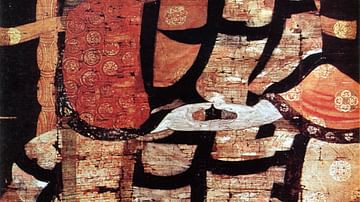
Definition
Saichō
Saichō, also known as Dengyo Daishi (767-822 CE), was a monk and scholar who founded the Buddhist Tendai Sect in Japan. Based on the teachings of the Chinese Tiantai Sect, Saichō's simplified and inclusive version of Buddhism grew in popularity...

Image
Saicho (Dengyo Daishi)
Saicho, also known as Dengyo Daishi, (767-822 CE) was a monk and scholar who founded the Buddhist Tendai Sect in Japan.
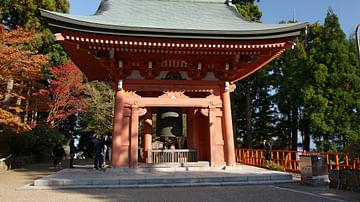
Definition
Enryakuji
The Enryakuji is a Buddhist monastic complex on the sacred Mt. Hiei, near Kyoto, Japan. The site was selected by the monk Saicho to become the headquarters of the Tendai sect, which he founded in Japan in the early 9th century CE. Enryakuji...
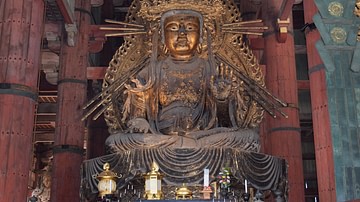
Article
Buddhism in Ancient Japan
Buddhism was introduced to ancient Japan via Korea in the 6th century CE with various sects following in subsequent centuries via China. It was readily accepted by both the elite and ordinary populace because it confirmed the political and...
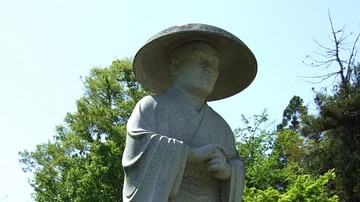
Definition
Ennin
Ennin (c. 793-864 CE, posthumous title: Jikaku Daishi) was a Japanese Buddhist monk of the Tendai sect who studied Buddhism at length in China and brought back knowledge of esoteric rituals, sutras, and relics. On his return, he published...
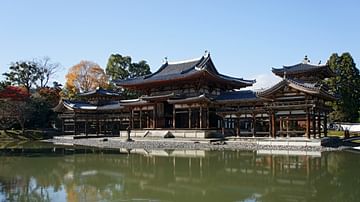
Definition
Heian Period
The Heian Period of Japanese history covers 794 to 1185 CE and saw a great flourishing in Japanese culture from literature to paintings. Government and its administration came to be dominated by the Fujiwara clan who eventually were challenged...
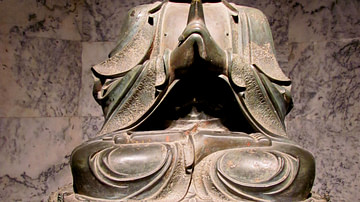
Definition
Esoteric Buddhism
Esoteric Buddhism is the mystical interpretation and practice of the belief system founded by the Buddha (known as Sakyamuni Buddha, l. c. 563 - c. 483 BCE). It is known by several names and is characterized by a personal relationship with...
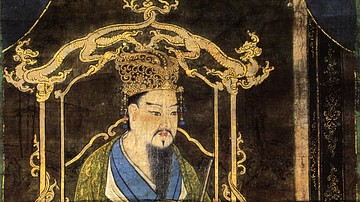
Definition
Emperor Kammu
Emperor Kammu (aka Kanmu) reigned in ancient Japan from 781 to 806 CE and is most noted for relocating the capital to Heiankyo (Kyoto) in 794 CE. Kammu was one of the most powerful emperors Japan had seen or would ever see, and his reign...
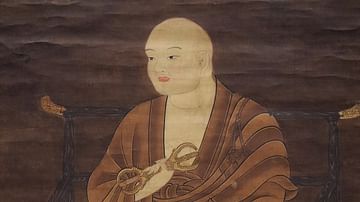
Definition
Kukai
Kukai or Kobo Daishi (774-835 CE) was a scholar, poet, and monk who founded Shingon Buddhism in Japan. The monk became the country's most important Buddhist saint and has been credited with all manner of minor miracles. Noted as a gifted...
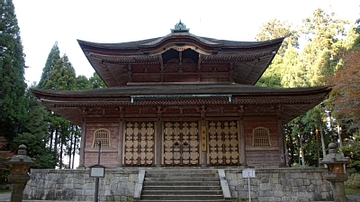
Image
Ordination Hall, Enryakuji
The Ordination Hall (Kaidan-in) of the Buddhist Enryakuji temple complex, Mt. Hiei, Japan. The site was founded by the monk Saicho in the early 9th century CE but all the buildings are later reconstructions.